

"..The Muktavali and its commentaries have been the most popular standard work on Navyanyaya. Yet no systematic translation and interpretation of these works are available in any modern language. Though there were some attempts to translate Muktavali, this is the first time that an attempt has been made to translate Dinakari into any modern language, Indian or Western...
This solid introduction addressed to the serious students of Nyaya thought on sabda is lucid and it is intended to give them a first hand knowledge of all the salient features of the Nyaya Philosophy of Language".
From the Foreword by Professor K. Kunjunni Raja.
Educated at Oxford and Vienna and in the rigorous ways of traditional Indian learning, John Vattanky is one of the foremost scholars in Nyaya. His writings have appeared in important philosophical journals in India and abroad. His book Gangefa’s Philosophy of God has been hailed by eminent scholars as a study of great significance and precision while some reviewers considered his work Development of Nyaya Theism, a first rate exercise in conceptual issues...a philosophical treat. Dr. Vattanky is Professor of Indian Philosophy and Sanskrit at Jnana-Deepa Vidyapeeth, Pune (India).
I deem it a privilege and an honour to have been invited to contribute a Foreword to this excellent English translation and interpretation of Nyayasiddhantamuktavali of Visvanatha Pancanana and its commentary Dinakari of Dinakara by Professor John Vattanky. In his explanations of Muktavali and Dinakart Professor Vattanky has made extensive use of the subcommentaries Ramarudri by Ramarudra and Subodhini by the late Maharaja of Cochin, PariksitThampuran. The Muktavali and its commentaries have been the most popular standard work on Navyanydya taught to the traditional scholars especially in South India.
Yet no systematic translation and interpretation of these works are available in any modern language. Though there were some attempts to translate Muktavali, this is the first time that an attempt has been made to translate Dinakari into any modern language, Indian or Western.
Professor Vattanky has studied Navyanydya texts from eminent traditional Pandits like Sri DamodaraPisharodi of Cochin and Sri Srinivasa Sastriji of Pune and modern authorities in the field like Prof. Oberhammer of Vienna and the late Prof. Matilal of Oxford. Professor Vattanky’sGangesa’s Philosophy of God, being an analysis, text, translation and interpretation of the Isvaravada section of Gangega’s Tattvacintamani with a study on the Development of Nyaya Theism was published by the Adyar Library and Research Centre, Madras, in 1984. It has been highly commended by discerning critics. As the Director of the Adyar Library and Research Centre I am particularly happy that we could publish this valuable work in Our Series.
I have great pleasure in presenting this new work of Professor Vattanky, Nyaya Philosophy of Language, an English translation and interpretation of the Upamanakhanda and Sabdakhanda of Karikavali, Muktavali and Dinakari. This solid introduction addressed to the serious students of Nyaya thought on sabda is lucid and it is intended to give them a first hand knowledge of all the salient features of the Nyaya Philosophy of Language. I am sure that this work will attract such serious students and scholars and give a new impetus to Navyanyaya studies in India and abroad.
In view of the immensity of Indian Philosophical literature that still remains to be critically explored and explained, it is no exaggeration to state that sustained researches into Indian Philosophical Systems are even now in their beginnings. If this statement is valid with regard to classical systems of Indian thought in general, it is still more true with regard to what is generally known as Navyanyaya.
The most fundamental text of Navyanyaya, the Tattva- cintamani of Gangesa though edited with the voluminous commentary of Mathuranatha stands in need of critical analysis and studies. Only bits and pieces of this seminal work have so far been translated and studied. There is also a large corpus of writings by way of commentaries and sub-commentaries on Tattvacintamani between the time of Gangesa and RaghunathaSiromani. They are the works of the great Naiyayikas such as Vasudeva Sarvabhauma, Pragalbha, Jayadeva and so on. These works still rema..1 to be edited, translated and interpreted.
But in the study of the Navyanyaya, Karikavali with its commentary Siddantamuktavali both by VisvanathaPaficanana with the commentaries Dinakari and Ramarudri by Dinakara and Ramarudra respectively have been extremely important for the last few centuries as advanced introductions to the subject matter. In fact, their importance is only next to that of Lattvacintamani and its standard commentaries. That is why, in the traditional way of studying Navyanyaya, a mastery of Kartkavali, Mukivali, Dinakari and Ramarudri is considered essential. This practice has been followed through out India in the last few centuries. It shows therefore, the intrinsic worth of these works. In fact, any one who carefully and systematically studies these treatises will marvel at the precision and depth which the Naiyayikas show when they deal with the various problems of Philosophy. And yet no systematic translation and interpretation of these books are available in any modern language.
In this context with a view to make available the richness of thought contained in these works to all those who are interested in Indian Philosophy in general and in Navyanyaya in particular, I decided to translate the whole of Karikavall, Muktavali and Dinakari, and interpret them in the light of Ramarudri and Subodhini. Now I have great pleasure in presenting to the public the volume containing the translation of the upamana and sabda sections of Karikavali, Muktavali and Dinakari. Although this is the first volume to appear, it is actually the fifth volume in the project of translating the whole of Karikavali, Muktavali and Dinakari and interpreting them with the help especially of Rémarudri and Subodhini. This is because I had to give a course on the Philosophy of Language to my students here at Jnana-DeepaVidyapeeth, Pune and I thought a first hand knowledge of the various aspects of this" subject from the Indian perspective can be best obtained by a study of Karikavalt, M: uktavali, Dinakart and Ramarudn.
However, the present work is much more than translation. There is an elaborate commentary on each significant line and expression of Muktavali and Dinakari taking into account all the important points and subtleties to be found in Ramarudri. I have also made ample use of Subodhini, a brilliant commentary on Karikavali, Muktavali, Dinakari and Ramarudri by the great royal sage PariksitThampuran of Cochin. Subodhini was also particularly helpful to establish the correct readings of Karikavali, Muktavali, Dinakari and Ramarudri.
Yet for all these, the present work is not an easy one. This is chiefly due to the difficulties inherent in the study of Navyanyaya itself. It is well known that this discipline makes use of a high degree of abstraction and a rigorously exact terminology. There is also the problem arising from inadequate or not yet standardized translations of technical terms. If one wants to study Navyanyaya in any depth, one has necessarily to get oneself familiar with these aspects of the subject, much in the same way as when one sets out to study mathematics one has to become quite acquainted with mathematical terms and concepts. And just as in spite of proficiency in English one cannot understand a book on mathematics though in English unless one knows mathematics, even soa person who canread easily and even speak fluently classical literary Sanskrit will not be in a position to follow the technical discussions in Dinakari or even in Muktavali unless he systematically studies Navyanyaya. It is useful to bear these facts in mind when one starts on this book.
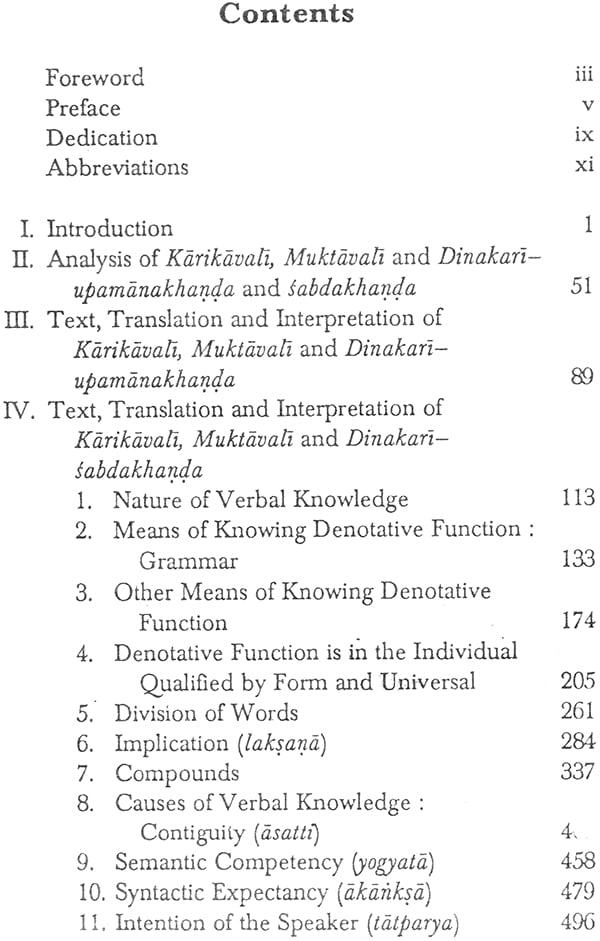

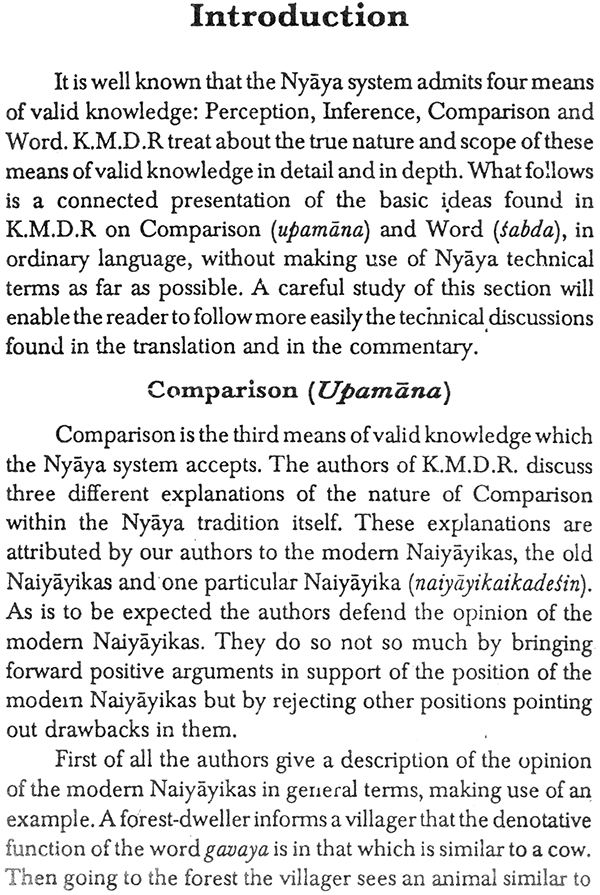
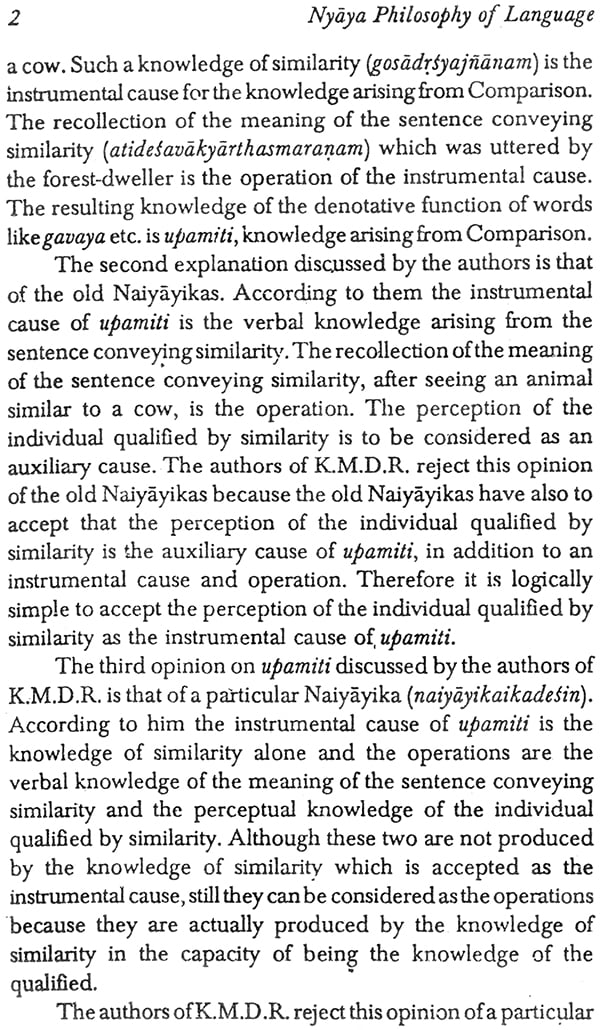
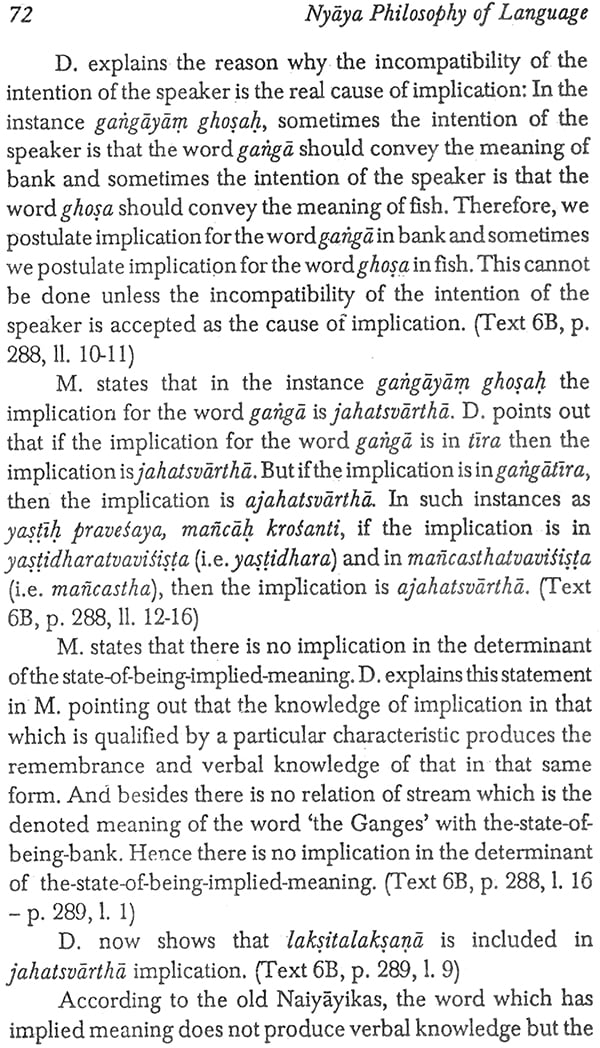

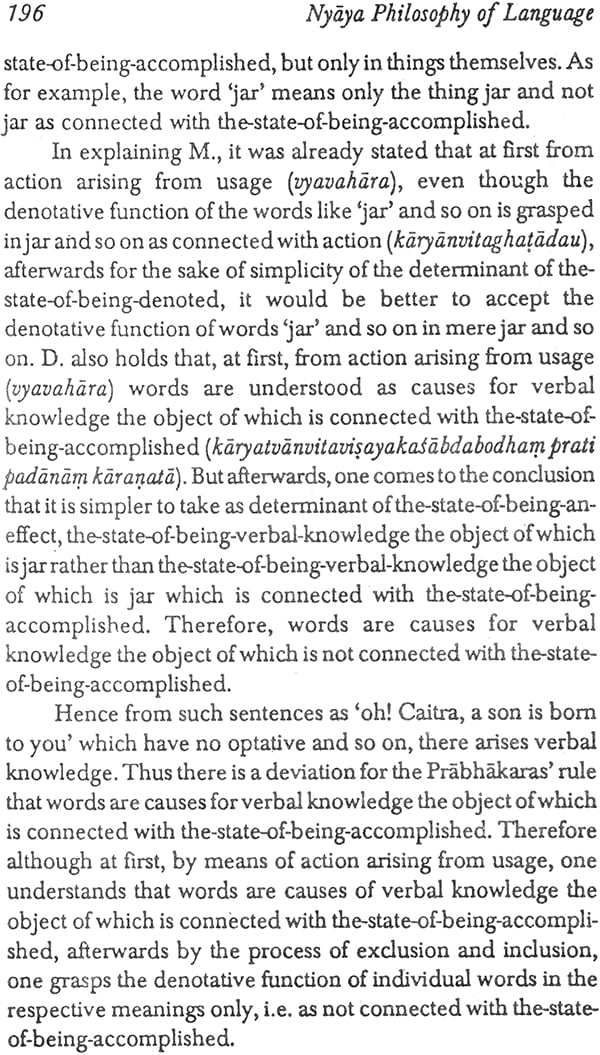
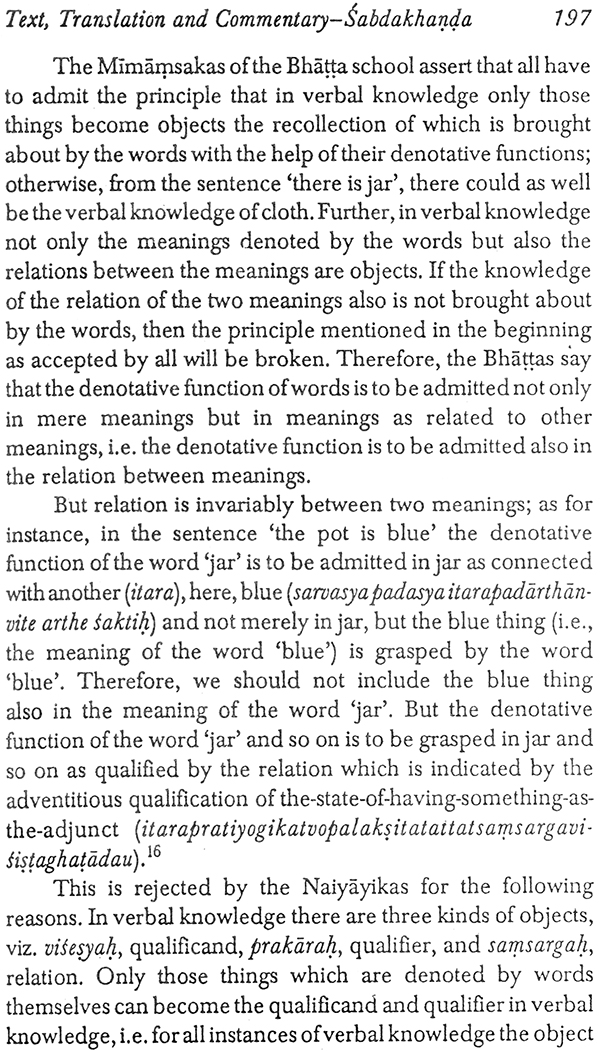
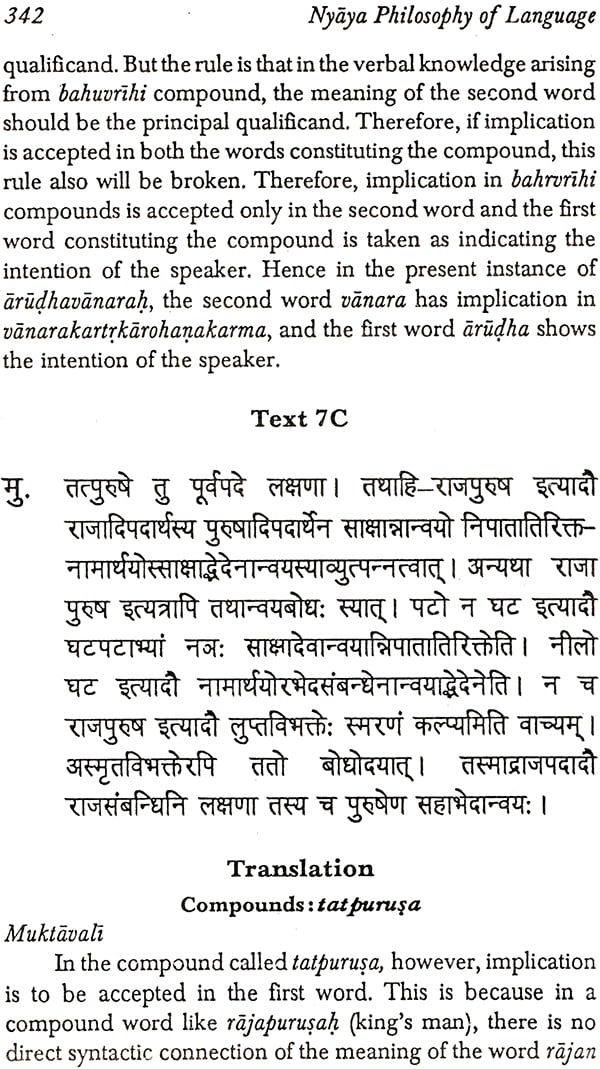
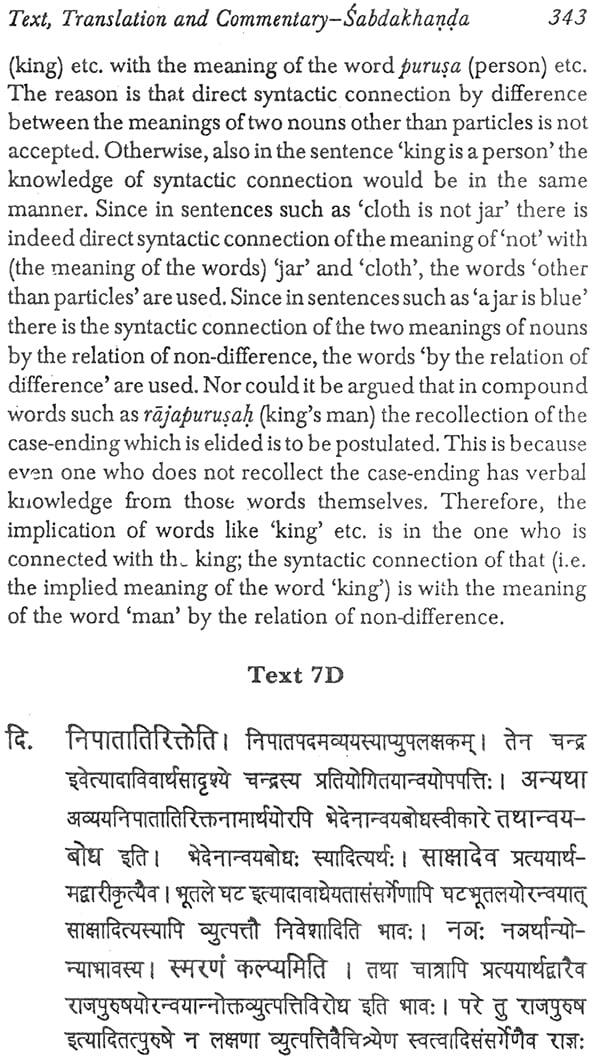
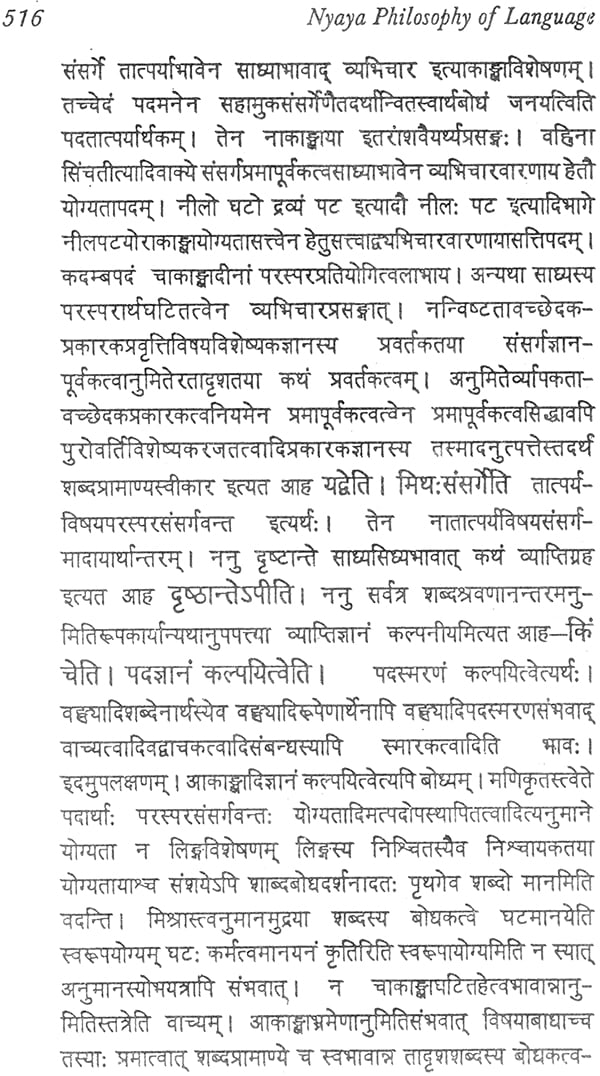
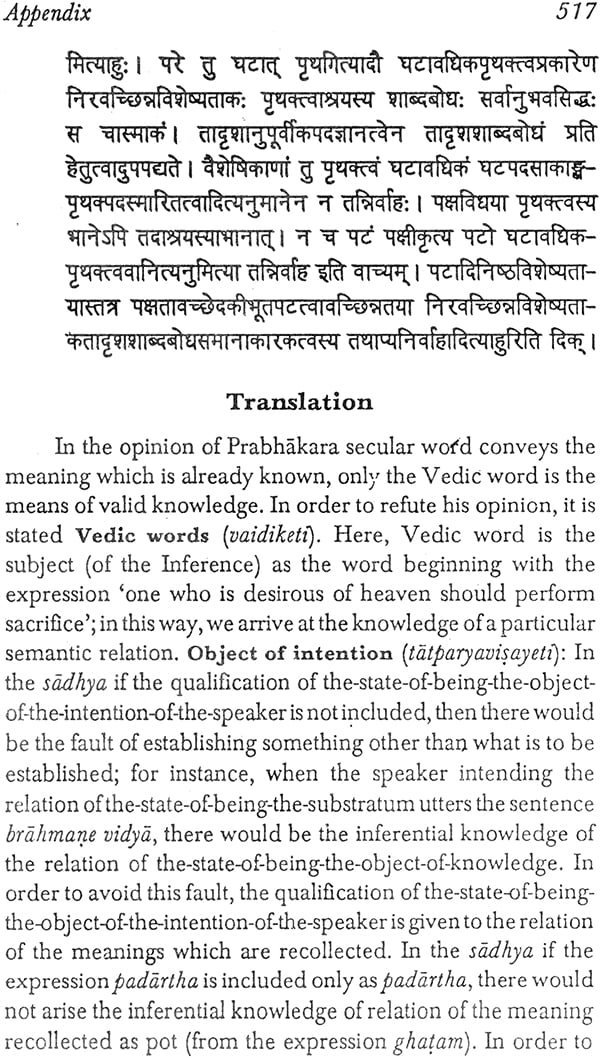
Your cart is currently empty.